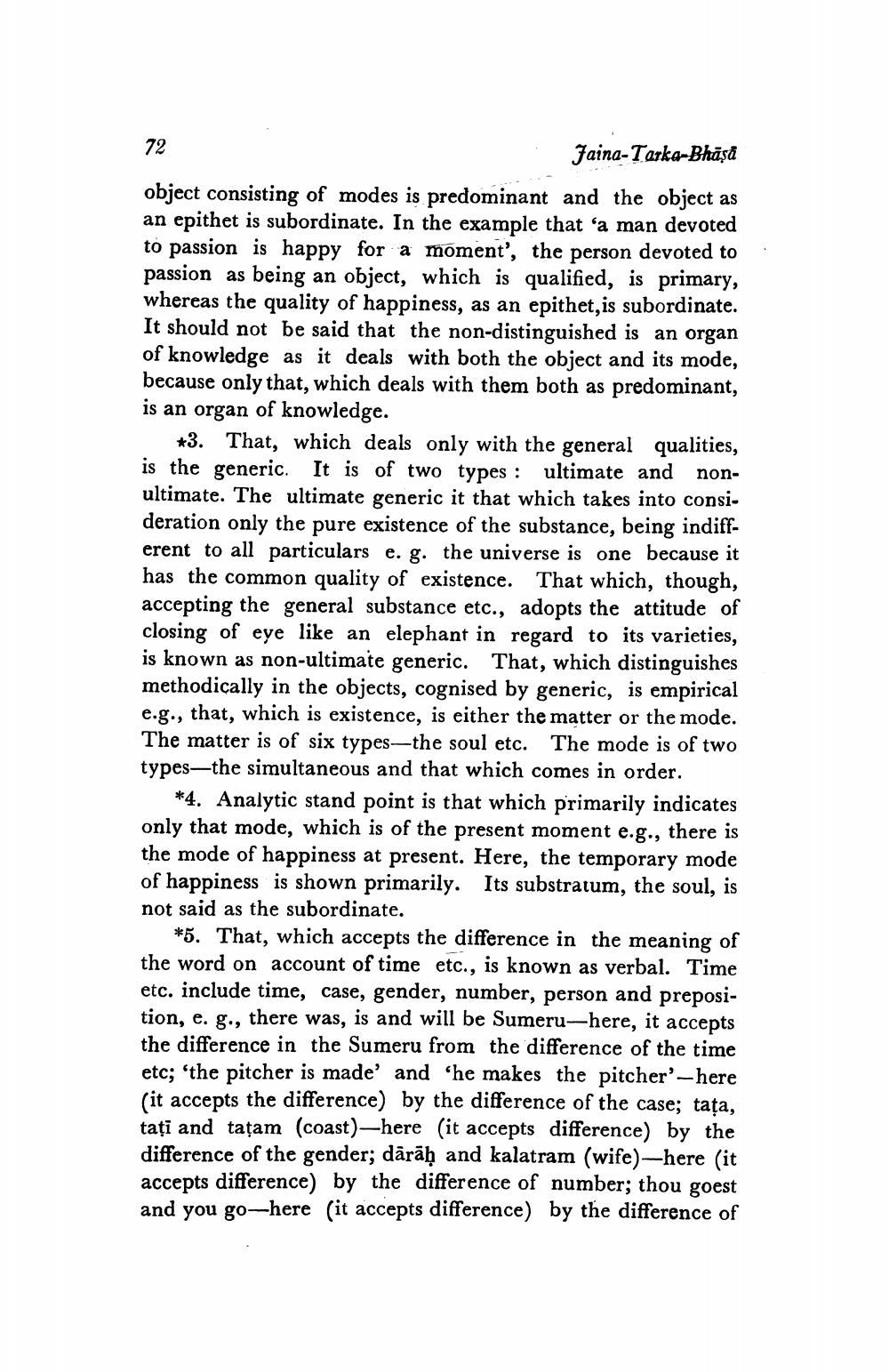________________
Jaina-Tarka-Bhāşå object consisting of modes is predominant and the object as an epithet is subordinate. In the example that 'a man devoted to passion is happy for a moment', the person devoted to passion as being an object, which is qualified, is primary, whereas the quality of happiness, as an epithet, is subordinate. It should not be said that the non-distinguished is an organ of knowledge as it deals with both the object and its mode, because only that, which deals with them both as predominant, is an organ of knowledge.
*3. That, which deals only with the general qualities, is the generic. It is of two types: ultimate and nonultimate. The ultimate generic it that which takes into consideration only the pure existence of the substance, being indifferent to all particulars e. g. the universe is one because it has the common quality of existence. That which, though, accepting the general substance etc., adopts the attitude of closing of eye like an elephant in regard to its varieties, is known as non-ultimate generic. That, which distinguishes methodically in the objects, cognised by generic, is empirical e.g., that, which is existence, is either the matter or the mode. The matter is of six types—the soul etc. The mode is of two types—the simultaneous and that which comes in order.
*4. Analytic stand point is that which primarily indicates only that mode, which is of the present moment e.g., there is the mode of happiness at present. Here, the temporary mode of happiness is shown primarily. Its substratum, the soul, is not said as the subordinate.
*5. That, which accepts the difference in the meaning of the word on account of time etc., is known as verbal. Time etc. include time, case, gender, number, person and preposition, e. g., there was, is and will be Sumeru-here, it accepts the difference in the Sumeru from the difference of the time etc; 'the pitcher is made' and 'he makes the pitcher'-here (it accepts the difference) by the difference of the case; tata, tați and tatam (coast)-here (it accepts difference) by the difference of the gender; dārāḥ and kalatram (wife)-here (it accepts difference) by the difference of number; thou goest and you go-here (it accepts difference) by the difference of




